A perfect day with Cecile Licad
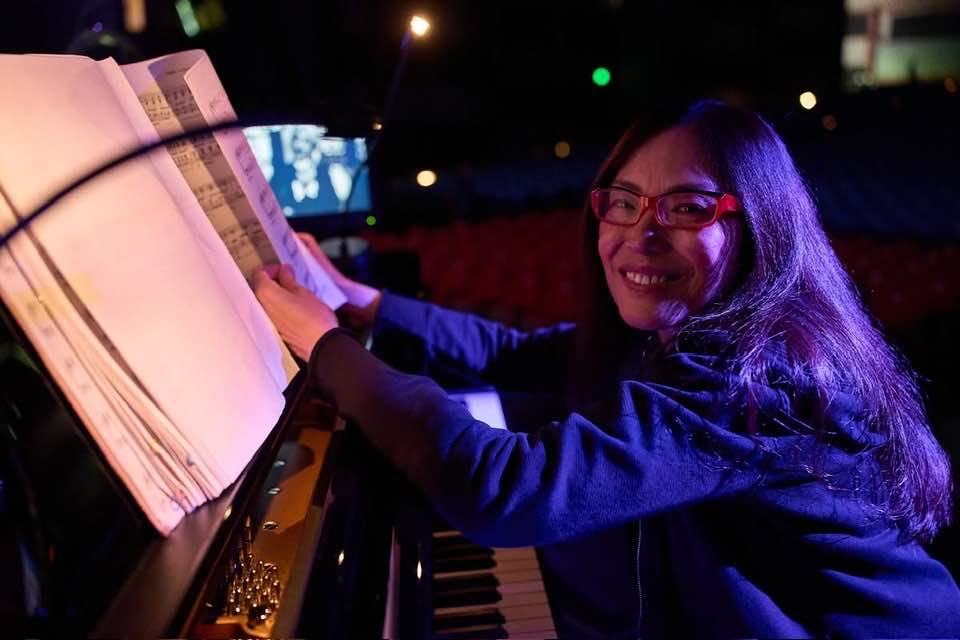
Cecile Licad doesn’t ask for much for a perfect day. Give her great weather and no bother—she’s all good.
Her morning starts with a cup of coffee. The blend, made especially for her, is so good she often ends up having two.
But if the kick of caffeine doesn’t perk her up, maybe a shot of the day’s “incredible news”—or a peek at what’s happening in the Philippines—will do the trick. Despite living in New York for decades, she still is “deeply attached” to her homeland. She often craves Filipino food and prefers speaking Tagalog to her Filipino friends.
Thunderstorms and lightning? “Frightening,” she says. But if the sky is nice and clear, she goes out—“believe it or not”—for a long walk from the Upper West Side all the way to Midtown Manhattan. There she makes a quick stop at the majestic St. Patrick’s Cathedral, the “mother church of my religion.”
“Unfortunately, I’ve been doing this less and less,” she tells Lifestyle in an email interview. “But I’m thinking of doing it more and more again.”
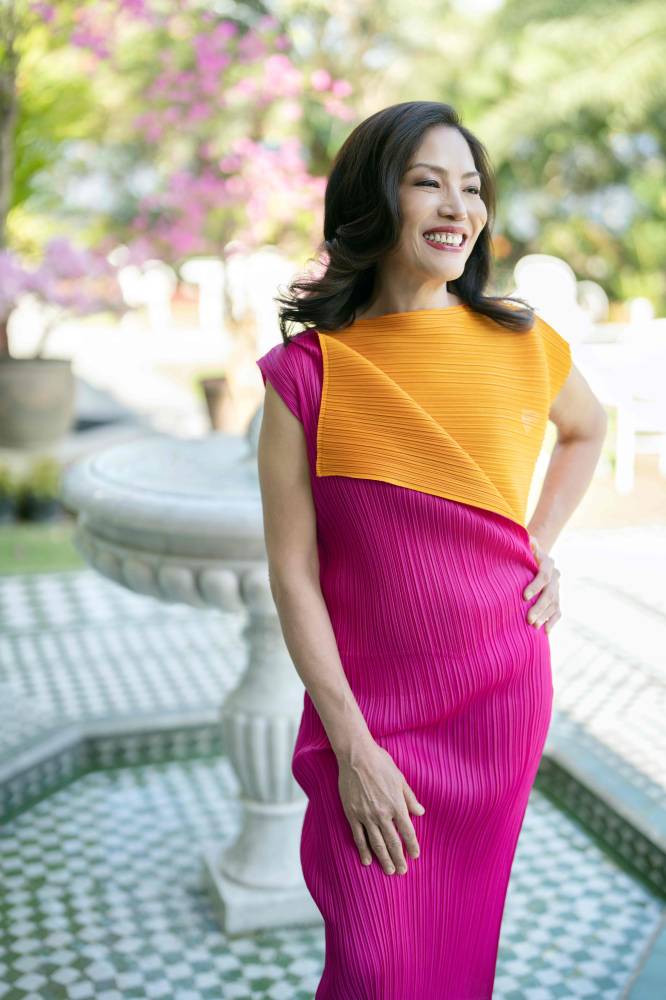
On her way back to her apartment, she cuts through Central Park and watches squirrels dart and play—a brief moment of respite before she turns her attention to “the serious part of her day”: the piano.
Now, it’s her turn to play.
Licad, of course, is the Philippines’ premier classical pianist. A child prodigy who first sat at the piano at the age of three, who later won the prestigious Leventritt Competition at age 20, launching an international career that has seen her perform with many of the world’s top orchestras.
The work ethic that got her there endures. But because she grew up an “intense practicer” and has been “such a good worker” all her life, she no longer feels the need to put in as many hours as she once did. That’s not to say she’s taking it easy. By fewer hours, she means eight or 10—still an hour (or several) too many for those without the same unyielding rigor.
These sessions naturally ramp up as shows draw near—like last month’s West Coast tour of the silent film “Louis” with the celebrated jazz trumpeter Wynton Marsalis, or her upcoming concert and outreach recitals in the Philippines this September and October. In these periods, she grows even more relentless, a woman possessed by music.
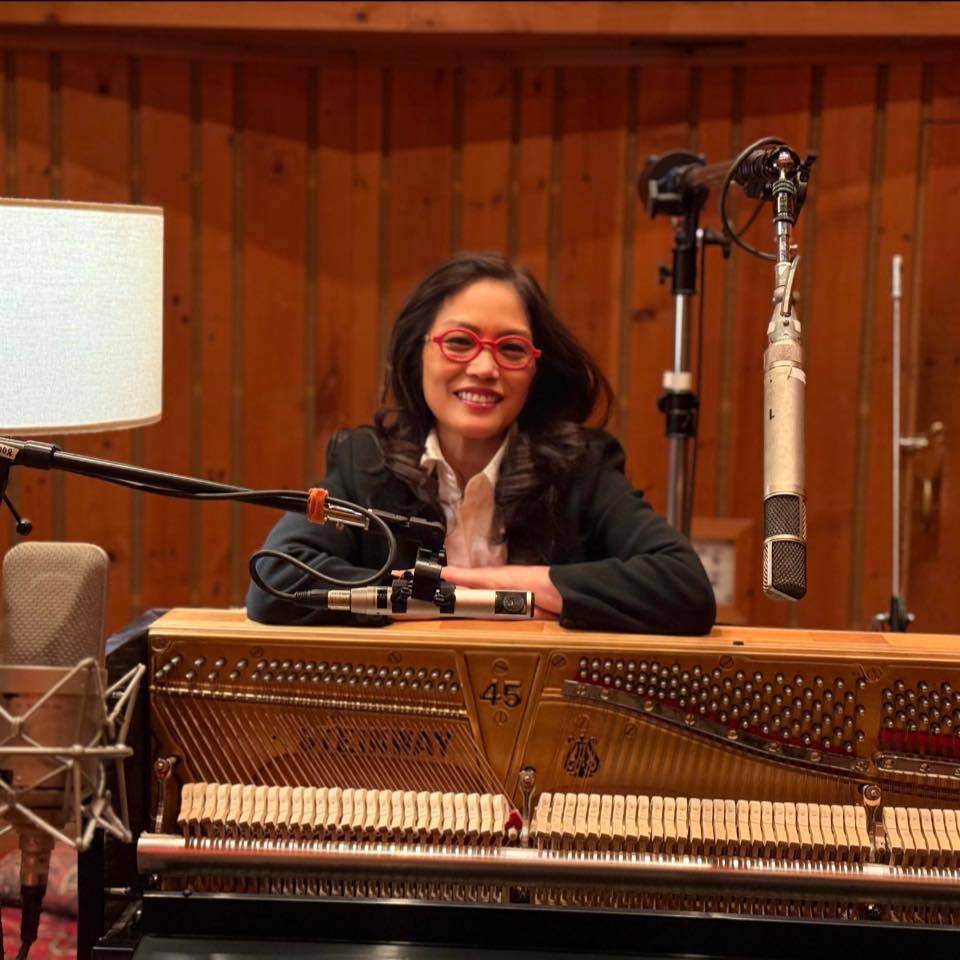
Super mastery
“Playing in public demands not only mastery, but super mastery of music,” she points out. “I can’t think of anything more dangerous than playing in public.”
Work is a “very private” affair for Licad. She doesn’t want anyone watching her, let alone coming near. She needs no looking after; no serious and mature artist does, she points out. “Only children lack discipline.”
She once said her youth was devoid of a social life. The piano was her best friend, along with cigarettes and her smoke-swirled confidantes. And even now, in this sacred time and space, it’s still—and usually—just the three of them.
Not too long ago, there were two more—if only her beloved cat and dog were still here with her. “They died recently and you will never get over it. I admire the nobility, intelligence of cats—such grace and beauty.”
She shares a deep, immutable bond with her pianos (she has two grands), but she isn’t so whimsical as to give them names.
“They’re not puppies—they don’t need precious names,” she says. “All these pianists who fetishize the pianos they play are just so full of it.”
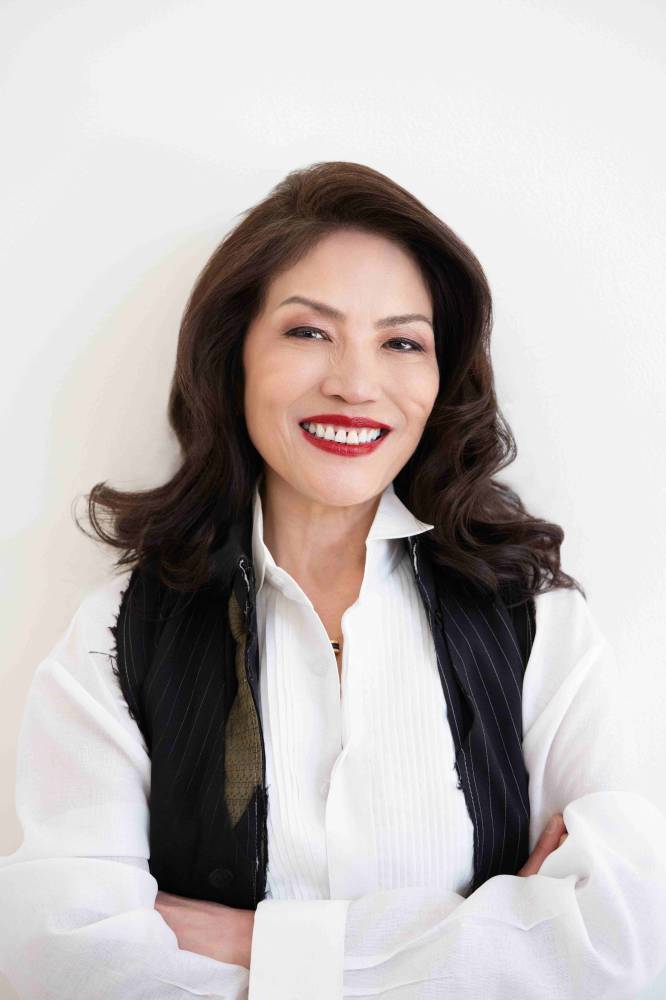
It’s easy to romanticize something so closely tied to one’s identity. But for Licad, stripped of sentimentality, the piano is, above all, “a tool to express myself”—a view befitting someone who considers herself “a carpenter who builds things.” “That’s where my attachment to the piano lies,” she says.
Her playing can only be so private, though. The tinkling and pounding of keys inevitably drifts beyond her walls and seeps into her neighbors’ homes. While some might be tickled to get a free concert of sorts from this piano virtuoso, not everyone feels like tuning in and shouting, “Bravo!”
“It’s very important for me to live in a place where neighbors don’t interfere with my work. Most pianists fear neighbors—if they don’t like hearing the music, it can make a person very inhibited,” she says.
But inhibited she is not. Hence, this rare bit of tension: “I’ve been threatened in court by past neighbors. Thank God they’re gone now.” Perhaps playing in private can be quite dangerous, too.
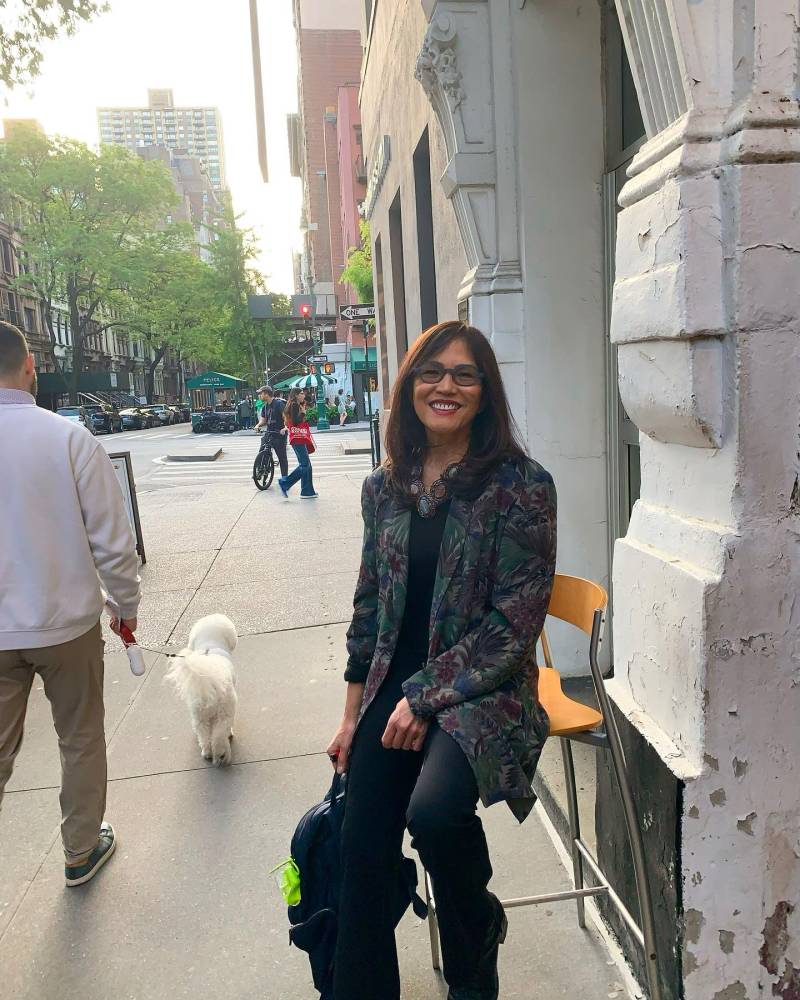
Of course, the danger she speaks of is more emotional and psychological. But there’s also a physical aspect to it—a risk tied to a pianist’s most vital tool: the hands.
After all, the hands that make music are the same ones used to lift heavy objects, open jars, and slice food—everyday tasks that carry quiet risks. Some pianists take extreme measures to protect theirs. Glenn Gould, for instance, famously avoided shaking hands—a precaution equal parts practical and obsessive.
Licad is nowhere near as paranoid.
Affectation
“Not shaking hands is really an affectation. But someone did crush my hand very badly once.” she recalls. “You never know how you can hurt your hand… I still slice onions and have gotten cuts doing it. But basically, I don’t pamper my hands, nor do I have any rituals.”
Arthritis and tendinitis? Those she hopes never to face as she ages. “Such afflictions have ruined many careers,” says Licad, 64.
This time, she wakes up feeling well and without pain—something always to be thankful for, she says. And so, she pounds away at the piano.
On Sept. 24, Licad will hold court at the Manila Metropolitan Theater with the Philippine Philharmonic Orchestra under the baton of Maestro Grzegorz Nowak, an “extraordinary” conductor whose “feeling for detail” she profoundly admires.
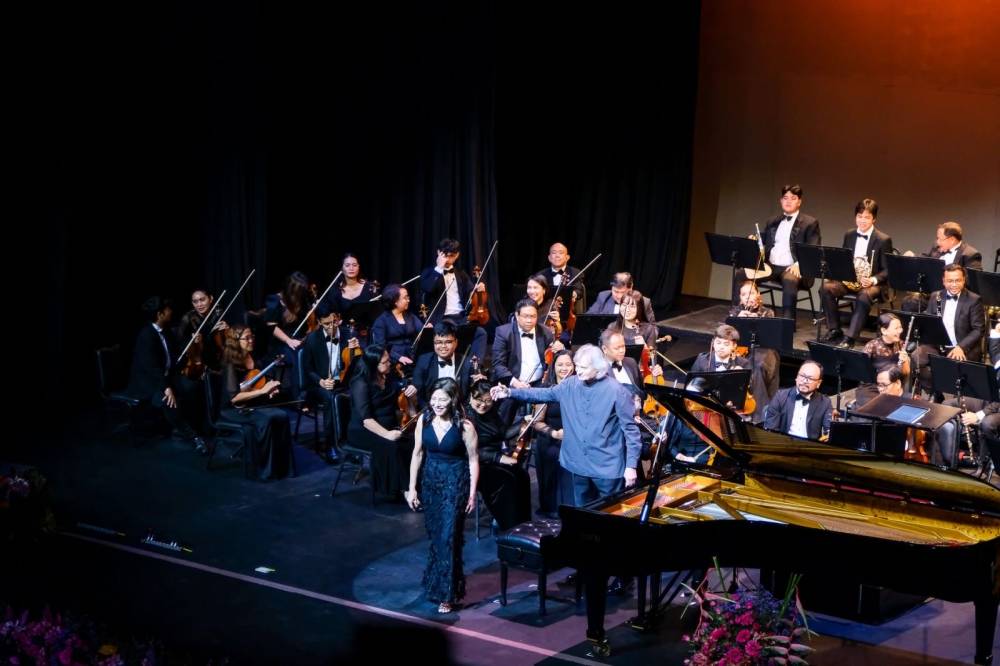
Licad is known for her technical precision, musical sensitivity, and fearless interpretations. This engagement’s repertoire will put these musical gifts to the fore: Her clarity and expressive warmth perfectly suit the lyricism and elegance of Mozart’s Piano Concerto No. 21, while her boldness and spontaneity make for an ideal match to the jazz-inflected exuberance of Ravel’s Piano Concerto in G Major.
While she has already played both pieces before, no two renditions are ever exactly alike. Familiarity shouldn’t breed complacency.
“If I’m playing something I’ve done before—even many, many times—and I haven’t touched it in a while, I absolutely relearn it as if I had never played it,” says Licad, who’s as experimental as she is exacting in her approach to practice. “That process isn’t only imaginative; it’s essential to keep the music fresh.”
And if she must perform something she’s not particularly fond of, she powers through it just the same. She doesn’t need to like it, but she has to own it. Sometimes, the piece ends up growing on her, though that’s very rarely the case. “I simply can’t give anything less than my best,” she says.
Nerves
But even the best don’t always feel their best. Licad—hailed as “a pianist’s pianist” by The New Yorker, a Grand Prix du Disque laureate (1985), and a recipient of two Presidential Awards (1991, 2016)—isn’t impervious to the occasional rush of nerves. All she knows is that there’s no guarantee she’ll play up to her standards every time she steps into the spotlight.
“Sometimes, when I’m feeling terrible for one reason or another, I end up playing my very best. Other times, I feel great and calm, yet I don’t play as well as I had hoped,” she says.
But she finds that what she wears onstage matters. She takes great care in choosing her outfits: looking put-together is important, of course, but comfort always comes first. She also adores eyeglasses and owns them in many different colors. A favorite? Her pair of red cat-eyes—functional and fun.
“And if you can’t have fun, then that’s a big problem,” she quips.
Occasionally, she brings along a talisman—an edible one. “Siling labuyo,” she says, “for courage.” No wonder critics so often describe her performances as fiery.
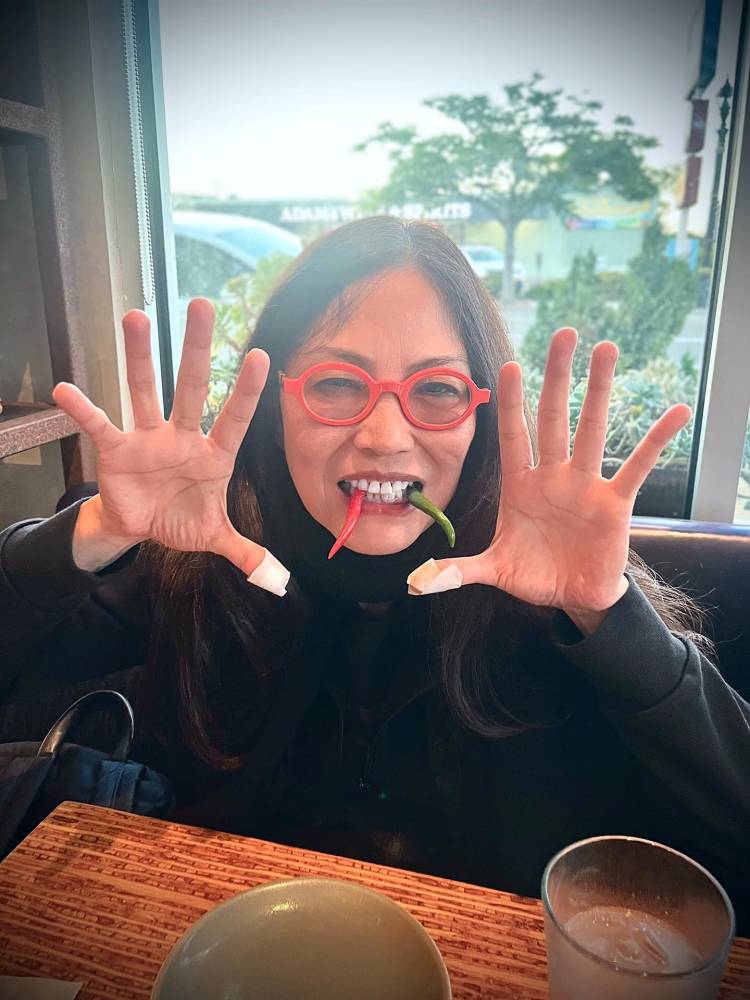
Throughout her career, Licad has ventured beyond the familiar classical canon, sharing her exceptional talents with diverse audiences across the world in places both expected and unexpected. Classical music is traditionally seen as high-brow, intertwined with stately affairs enjoyed mostly by the well-heeled. She has had no shortage of that.
She has played for different Philippine Presidents, international dignitaries, and royalty—like King Hassan II of Morocco—at various official functions and cultural events. In July 2022, she performed at a dinner hosted by the then newly elected President Marcos Jr. at the Malacañang Palace. Among the guests were the former First Lady Imelda Marcos, who helped facilitate Licad’s studies at the Curtis Institute, where the latter trained under the tutelage of legendary teachers like Rudolf Serkin.
While such engagements may prompt others to speculate about her political proclivities, Licad is clear: “When it comes to my piano playing, I have absolutely no politics. I only hope to unite people through music.”

The audience
Indeed, Licad, with equal ease, navigates elite circles and everyday communities alike. She has played in public spaces like malls and parks, and brought her music to rural areas—playing for farmers and fisherfolk in hopes of sparking musical enrichment in places far away from urban centers. She’s also a familiar presence at charity events that benefit the underprivileged.
At the heart of it, it’s not the venue that matters most—it’s the audience. “Very few people that I know have had such a variety of concerts. I’ve played for kings and coal miners,” she says. “I would play for a group of lions in the jungle and feed on their roars.”
After her show at the Met, Licad will hold solo recitals in outreach shows: the Baguio Country Club on Sept. 27; the Pinto Art Museum in Antipolo City on Sept. 28; the MiraNila Ancestral House in Quezon City on Oct. 1; and the University of the Philippines Visayas in Iloilo City on Oct. 6.
“It’s important for me to make classical music a part of my countrymen’s life, including those outside Manila,” she says.
Despite her formidable resume, Licad isn’t one to chase accolades. “I’m not a sportswoman,” she says. She doesn’t even keep close tabs on her own recordings. And if she’s ever given an award, she wants to be sure she’s truly earned it. Because recognition carries not only prestige, but responsibility.
“Being a servant to music automatically gives you a responsibility to share,” she stresses.
Besides, no burnished trophy can match the feeling of someone coming up to her and saying her music left a lasting impression. “I’m pleased when someone tells me I told a wonderful story through my music,” she says.

Licad must be famished by the time she finishes practicing. Food is “essential to my happiness,” she says, and keeps a list of excellent Filipino restaurants that she can order from. She’s also “not a bad cook”; sometimes she thinks of recipes she can easily whip up. She loves sinigang na hipon or pata, or anything with soup; anything sour, or anything with rice and fish sauce. And she keeps that siling labuyo handy for good measure.
Once in a while, a young pianist seeking sage advice will drop by and play for her. Otherwise, she catches up on the many emails she gets daily—which she finds oddly relaxing—or looks for a good television series to binge on till the wee hours.
“And that’s it, the day is over,” she declares.
Tomorrow brings another cup of coffee. Maybe another stroll in the park. Almost all the time, she finds new things to explore. But none of them, Licad says, ever becomes worth obsessing over.
But the piano—as it always has, and always will—awaits. “I wouldn’t be content if I weren’t playing,” she says. “That’s who I am.”

















